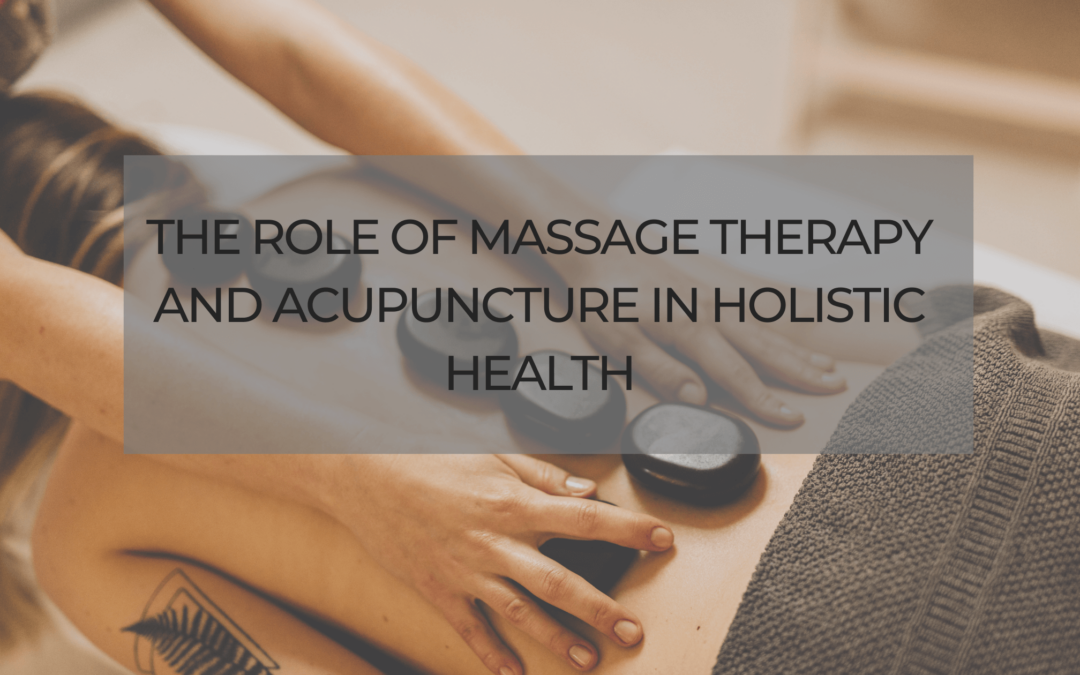In today’s fast-paced world, taking care of our physical, mental, and emotional well-being is crucial. Holistic health approaches recognize the interconnectedness of these aspects and focus on treating the whole person rather than just symptoms. Massage therapy and acupuncture are two powerful modalities that play a significant role in promoting holistic health.
Massage Therapy
Massage therapy is a hands-on practice that involves applying pressure and manipulating the soft tissues of the body. It has been used for centuries in various cultures to promote relaxation, relieve muscle tension, and improve circulation. Here are some of the key benefits and roles of massage therapy in holistic health:
- Stress Reduction: Massage therapy promotes deep relaxation and helps reduce stress levels. It triggers the release of endorphins, the body’s natural feel-good hormones, which can improve mood and overall well-being.
- Pain Management: Massage therapy is known to provide relief from chronic pain conditions such as back pain, arthritis, and migraines. It helps relax tight muscles, improve blood flow, and release tension, reducing pain and discomfort.
- Improved Circulation: The manual manipulation of muscles and tissues during a massage session enhances blood flow and lymphatic circulation. This increased circulation delivers oxygen and nutrients to the body’s tissues while removing metabolic waste products, promoting overall health and healing.
- Enhanced Flexibility and Range of Motion: Regular massage therapy sessions can help improve flexibility and increase the range of motion in joints. By working on tight muscles and releasing adhesions, massage therapy helps restore mobility and supports better posture.
Acupuncture
Acupuncture is an ancient Chinese healing practice that involves the insertion of thin needles into specific points on the body. It is based on the concept of Qi, the body’s vital energy, and aims to restore balance and harmony within the body. Here’s how acupuncture contributes to holistic health:
- Balancing Energy Flow: According to traditional Chinese medicine, the body’s health is influenced by the flow of Qi. Acupuncture helps stimulate specific points along meridians, or energy pathways, to regulate the flow of Qi and restore balance. This balance promotes overall health and well-being.
- Pain Relief: Acupuncture is well-known for its effectiveness in pain management. By targeting specific points associated with pain and discomfort, acupuncture can help alleviate chronic pain conditions, such as headaches, back pain, and joint pain, without relying solely on medications.
- Stress Reduction and Emotional Well-being: Acupuncture has a calming effect on the nervous system, helping to reduce stress and anxiety. It can also improve sleep quality and support emotional well-being by releasing endorphins, serotonin, and other neurotransmitters associated with relaxation and mood regulation.
Integration and Synergy:
Massage therapy and acupuncture work synergistically to enhance holistic health. Integrating these practices into a wellness routine can amplify their individual benefits and promote overall well-being.
Massage therapy and acupuncture are powerful modalities that contribute to holistic health by addressing physical, mental, and emotional well-being. Through their ability to reduce stress, alleviate pain, improve circulation, restore balance, and promote relaxation, these practices offer a comprehensive approach to wellness. Whether used individually or in combination, massage therapy, and acupuncture have the potential to enhance overall well-being and support a holistic approach to health. Consider incorporating these practices into your wellness routine to experience their transformative benefits.
